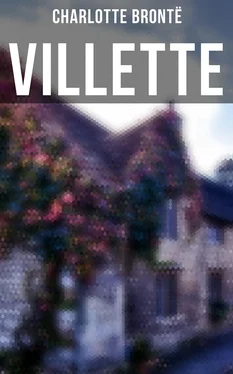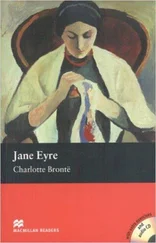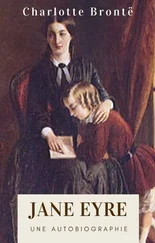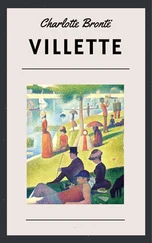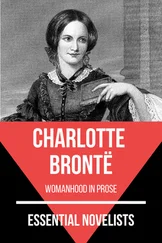In going to London, I ran less risk and evinced less enterprise than the reader may think. In fact, the distance was only fifty miles. My means would suffice both to take me there, to keep me a few days, and also to bring me back if I found no inducement to stay. I regarded it as a brief holiday, permitted for once to work-weary faculties, rather than as an adventure of life and death. There is nothing like taking all you do at a moderate estimate: it keeps mind and body tranquil; whereas grandiloquent notions are apt to hurry both into fever.
Fifty miles were then a day’s journey (for I speak of a time gone by: my hair, which, till a late period, withstood the frosts of time, lies now, at last white, under a white cap, like snow beneath snow). About nine o’clock of a wet February night I reached London.
My reader, I know, is one who would not thank me for an elaborate reproduction of poetic first impressions; and it is well, inasmuch as I had neither time nor mood to cherish such; arriving as I did late, on a dark, raw, and rainy evening, in a Babylon and a wilderness, of which the vastness and the strangeness tried to the utmost any powers of clear thought and steady self-possession with which, in the absence of more brilliant faculties, Nature might have gifted me.
When I left the coach, the strange speech of the cabmen and others waiting round, seemed to me odd as a foreign tongue. I had never before heard the English language chopped up in that way. However, I managed to understand and to be understood, so far as to get myself and trunk safely conveyed to the old inn whereof I had the address. How difficult, how oppressive, how puzzling seemed my flight! In London for the first time; at an inn for the first time; tired with travelling; confused with darkness; palsied with cold; unfurnished with either experience or advice to tell me how to act, and yet — to act obliged.
Into the hands of common sense I confided the matter. Common sense, however, was as chilled and bewildered as all my other faculties, and it was only under the spur of an inexorable necessity that she spasmodically executed her trust. Thus urged, she paid the porter: considering the crisis, I did not blame her too much that she was hugely cheated; she asked the waiter for a room; she timorously called for the chambermaid; what is far more, she bore, without being wholly overcome, a highly supercilious style of demeanour from that young lady, when she appeared.
I recollect this same chambermaid was a pattern of town prettiness and smartness. So trim her waist, her cap, her dress — I wondered how they had all been manufactured. Her speech had an accent which in its mincing glibness seemed to rebuke mine as by authority; her spruce attire flaunted an easy scorn to my plain country garb.
“Well, it can’t be helped,” I thought, “and then the scene is new, and the circumstances; I shall gain good.”
Maintaining a very quiet manner towards this arrogant little maid, and subsequently observing the same towards the parsonic-looking, black-coated, white-neckclothed waiter, I got civility from them ere long. I believe at first they thought I was a servant; but in a little while they changed their minds, and hovered in a doubtful state between patronage and politeness.
I kept up well till I had partaken of some refreshment, warmed myself by a fire, and was fairly shut into my own room; but, as I sat down by the bed and rested my head and arms on the pillow, a terrible oppression overcame me. All at once my position rose on me like a ghost. Anomalous, desolate, almost blank of hope it stood. What was I doing here alone in great London? What should I do on the morrow? What prospects had I in life? What friends had I on, earth? Whence did I come? Whither should I go? What should I do?
I wet the pillow, my arms, and my hair, with rushing tears. A dark interval of most bitter thought followed this burst; but I did not regret the step taken, nor wish to retract it A strong, vague persuasion that it was better to go forward than backward, and that I could go forward — that a way, however narrow and difficult, would in time open — predominated over other feelings: its influence hushed them so far, that at last I became sufficiently tranquil to be able to say my prayers and seek my couch. I had just extinguished my candle and lain down, when a deep, low, mighty tone swung through the night. At first I knew it not; but it was uttered twelve times, and at the twelfth colossal hum and trembling knell, I said: “I lie in the shadow of St. Paul’s.”
Table of Contents
The next day was the first of March, and when I awoke, rose, and opened my curtain, I saw the risen sun struggling through fog. Above my head, above the house-tops, co-elevate almost with the clouds, I saw a solemn, orbed mass, dark blue and dim — THE DOME. While I looked, my inner self moved; my spirit shook its always-fettered wings half loose; I had a sudden feeling as if I, who never yet truly lived, were at last about to taste life. In that morning my soul grew as fast as Jonah’s gourd.
“I did well to come,” I said, proceeding to dress with speed and care. “I like the spirit of this great London which I feel around me. Who but a coward would pass his whole life in hamlets; and for ever abandon his faculties to the eating rust of obscurity?”
Being dressed, I went down; not travel-worn and exhausted, but tidy and refreshed. When the waiter came in with my breakfast, I managed to accost him sedately, yet cheerfully; we had ten minutes’ discourse, in the course of which we became usefully known to each other.
He was a grey-haired, elderly man; and, it seemed, had lived in his present place twenty years. Having ascertained this, I was sure he must remember my two uncles, Charles and Wilmot, who, fifteen, years ago, were frequent visitors here. I mentioned their names; he recalled them perfectly, and with respect. Having intimated my connection, my position in his eyes was henceforth clear, and on a right footing. He said I was like my uncle Charles: I suppose he spoke truth, because Mrs. Barrett was accustomed to say the same thing. A ready and obliging courtesy now replaced his former uncomfortably doubtful manner; henceforth I need no longer be at a loss for a civil answer to a sensible question.
The street on which my little sitting-room window looked was narrow, perfectly quiet, and not dirty: the few passengers were just such as one sees in provincial towns: here was nothing formidable; I felt sure I might venture out alone.
Having breakfasted, out I went. Elation and pleasure were in my heart: to walk alone in London seemed of itself an adventure. Presently I found myself in Paternoster Row — classic ground this. I entered a bookseller’s shop, kept by one Jones: I bought a little book — a piece of extravagance I could ill afford; but I thought I would one day give or send it to Mrs. Barrett. Mr. Jones, a dried-in man of business, stood behind his desk: he seemed one of the greatest, and I one of the happiest of beings.
Prodigious was the amount of life I lived that morning. Finding myself before St. Paul’s, I went in; I mounted to the dome: I saw thence London, with its river, and its bridges, and its churches; I saw antique Westminster, and the green Temple Gardens, with sun upon them, and a glad, blue sky, of early spring above; and between them and it, not too dense, a cloud of haze.
Descending, I went wandering whither chance might lead, in a still ecstasy of freedom and enjoyment; and I got — I know not how — I got into the heart of city life. I saw and felt London at last: I got into the Strand; I went up Cornhill; I mixed with the life passing along; I dared the perils of crossings. To do this, and to do it utterly alone, gave me, perhaps an irrational, but a real pleasure. Since those days, I have seen the West End, the parks, the fine squares; but I love the city far better. The city seems so much more in earnest: its business, its rush, its roar, are such serious things, sights, and sounds. The city is getting its living — the West End but enjoying its pleasure. At the West End you may be amused, but in the city you are deeply excited.
Читать дальше
